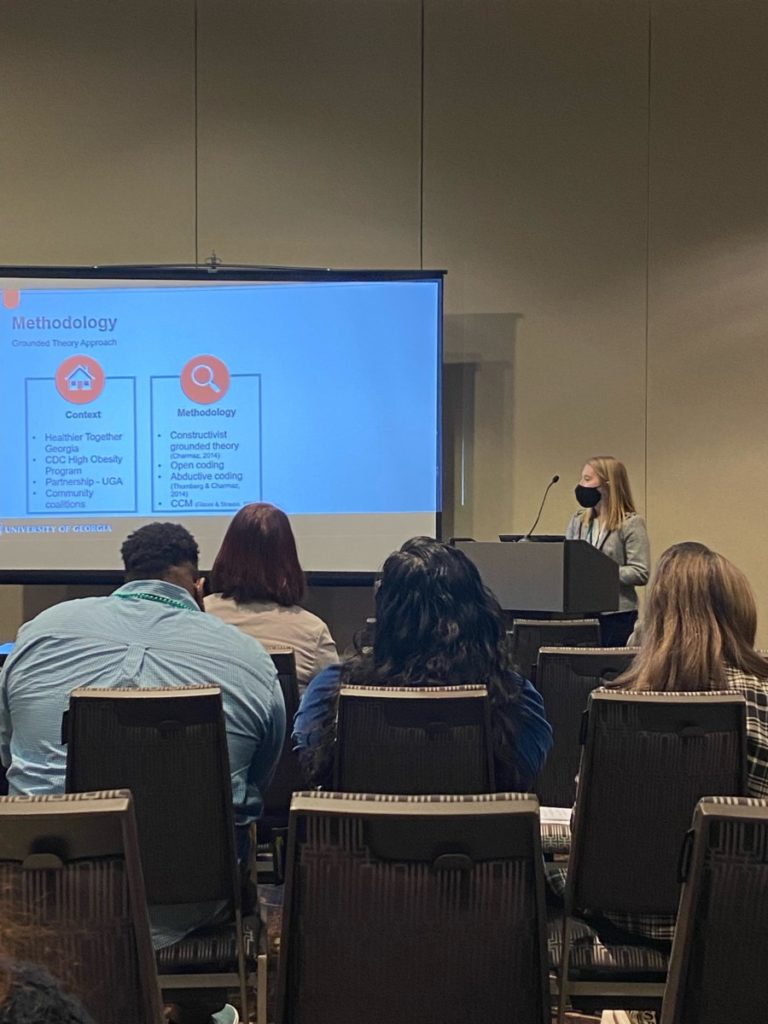
Katie Sanders, a doctoral candidate in the Agricultural Leadership, Education and Communication program at the University of Georgia, recently published an article exploring identity-oriented and culturally responsive approaches for evaluating health promotion and food access projects in rural communities. The article, published in Community Development, is a pilot study for Sanders’ dissertation focused on examining the CDC-funded Healthier Together project in rural Georgia to identify lessons learned and implications for the field of evaluation in Cooperative Extension from a culturally responsive perspective. Dr. Alexa Lamm, Sanders’ dissertation chair and academic advisor, and Dr. Abigail Borron, a member of Sanders’ dissertation committee, were coauthors on the piece.
The pilot study identified aspects of identity narratives within a community-based health-promotion initiative, Healthier Together, through a culturally responsive lens to develop a preliminary theory of identity-oriented evaluation. Data were collected with members of the community coalition, a group of active leaders and community members who implement the Healthier Together project in their communities, in one county participating in the rural health-promotion program. A constructivist grounded theory approach was used to identify themes related to identity construction by participants. Constructivist grounded theory essentially allows researchers to examine data, such as an interview transcript, to see the fundamental pieces of a case (for example, the Healthier Together program), guided by the overarching research goal. The analysis results in themes, or patterns of data, that help answer research questions.
Themes identified in the analysis related to identity narratives in the Healthier Together project included community identity, economic narratives of health, personal identity, descriptions of coalition, cultural food preferences, identity constructions around health, community-first perspective, collaboration across community sectors, slowness of change, and social observations related to behavior change. Looking at the themes in a rural health-promotion context, Sanders and her coauthors discuss implications for engaging in community development using identity as an entry point for participatory work.
Sanders hopes to create a series of strategies, from the current study and her subsequent dissertation work, for Cooperative Extension agents working in rural communities who are required to conduct evaluation as part of their job. Rather than viewing evaluation as a necessary evil to check of a list, Sanders hopes to cultivate mechanisms and conduct trainings about using evaluation as a participatory method to build relationships with rural communities.